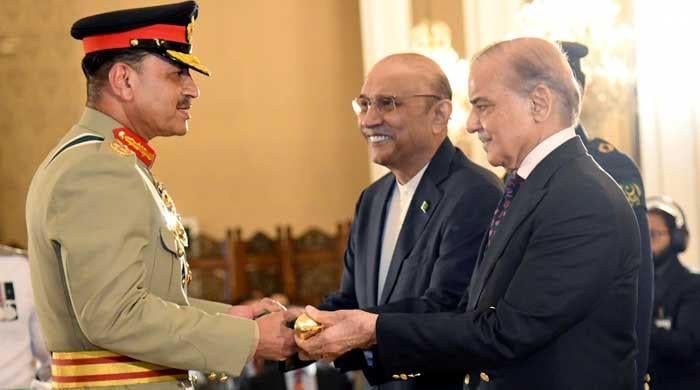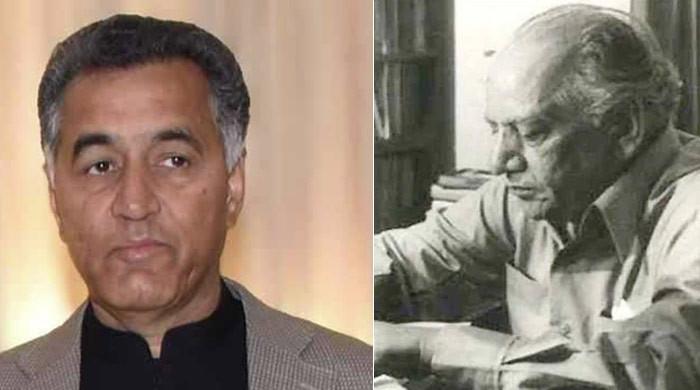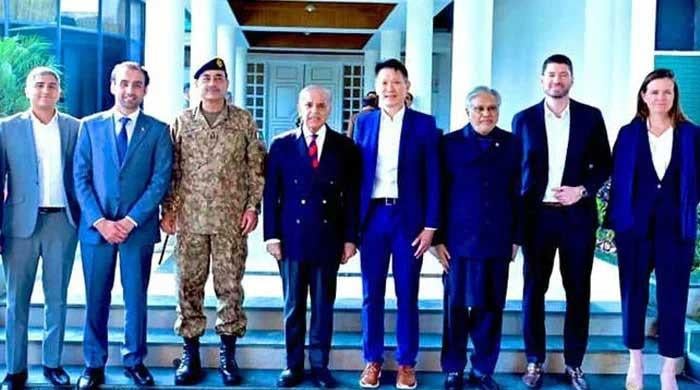Will SC order be applicable on air and naval chiefs?
Like the army chief, the air and naval chiefs too command their respective forces
November 29, 2019
ISLAMABAD: Will the Supreme Court (SC) decision on the army chief’s extension also be applicable on Chairman Joint Chiefs of Staff Committee, air chief and naval chief?
Like the army chief, the air and naval chiefs too command their respective forces and fall in the same category as per their responsibilities with regard to the defence of the country’s frontiers.
Additionally, the Article 243 of the Constitution that was extensively discussed during the last few days of the SC’s hearing of army chief’s extension case, deals with all the three chiefs — army, naval and air force as well as CJCSC — equally.
In its short order, the Supreme Court has referred to the attorney general’s categorical assurance that the past practice of extensions (given to army chiefs either by themselves or by the governments being followed in General Qamar Javed Bajwa’s case) is to be codified under the law.
The attorney general undertook that the federal government shall initiate the process to carry out the necessary legislation in this regard and sought a period of six months for getting the needful done.
The SC order said, “Considering that the COAS is responsible for the command, discipline, training, administration, organisation and preparedness for war of the Army and is the Chief Executive in General Headquarters, we, while exercising judicial restraint, find it appropriate to leave the matter to Parliament and the federal government to clearly specify the terms and conditions of service of the COAS through an Act of Parliament and to clarify the scope of Article 243 of the Constitution in this regard.”
Just like what the SC in its order stated about the functions and responsibilities of the army chief, the chiefs of Air Force and Navy are responsible for the command, discipline, training, administration, organisation and preparedness for war of their respective forces and are also the chief executive in their respective headquarters.
The much-discussed Article 243, interestingly, deals with command of all the armed forces. The constitutional article also envisages the same procedure of appointment for all the services chiefs.
The Article 243 reads as: “Command of Armed Forces. 1. The federal government shall have control and command of the Armed Forces. 2. Without prejudice to the generality of the foregoing provision, the supreme command of the Armed Forces shall vest in the President. 3. The President shall subject to law, have power– a. to raise and maintain the Military, Naval and Air Forces of Pakistan; and the Reserves of such Forces; and b. to grant Commissions in such Forces. 4. The President shall, on advice of the Prime Minister, appoint- a. the Chairman, Joint Chiefs of Staff Committee; b. the Chief of the Army Staff; c. the Chief of the Naval Staff; and d. the Chief of the Air Staff, and shall also determine their salaries and allowances.”
In view of the attorney general’s assurance given to the Supreme Court, the government is expected to get Parliament involved for a fresh legislation for inclusion of a provision for extension in the service of Army Chief. Either the Article 243 will be amended or new additions would be made in Army Act or some other relevant law.
However, it is not clear either from the Supreme Court’s order or the Attorney General’s assurance whether or not the extension provision, to be introduced, will only apply to the Army Chief or would also include Air Force and Naval Chiefs, and possibly Chairman Joints Chief of Staff Committee.
In its observations during last two days of the case’s hearing, the Supreme Court has been referring to past practices of generals getting repeated extensions as not something encouraging. However, in its decision the apex court has relied on the AG’s assurance to codify the same practices.









